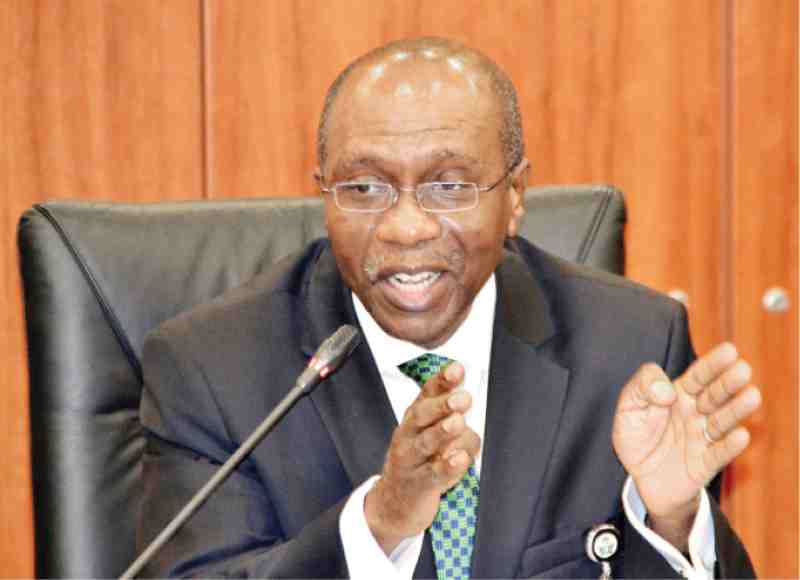Bank customers are expected to start enjoying more interest on their savings following a directive by the Central Bank of Nigeria to all deposit money banks to increase interest rate on deposits from 10 to 30 percent.
Daily Trust reports that the CBN recently directed banks to pay savings deposit accounts an interest rate of at least 4.2%; from the 1.4% that previously obtained.
- Former NFF scribe, Amadu presents 22-point agenda to rescue Nigerian football
- Buhari and Nigeria’s climate challenge ahead COP27
In a circular dated August 15, 2022 titled “Review of Interest Rate on Savings Deposits”, signed by Haruna B. Mustafa, Director of Banking Supervision, the apex bank explained that the hike in interest rate on savings, which is eff ective from August 1, was made in light of the return to complete normalcy and aft er taking into account the current macroeconomic conditions. Th e circular reads in part: “It will be recalled that as part of the efforts to ameliorate the impact of the COVID-19 pandemic, the Central Bank of Nigeria reduced the minimum interest rates payable on local currency savings deposits from 30% to 10% of the Monetary Policy Rate (MPR). Th is was aimed at stimulating growth in
the larger economy following the economic slowdown occasioned by the pandemic.”
CBN added that, “Following the return to full normalcy and considering the prevailing macroeconomic conditions, it has become necessary to eff ect an upward adjustment of the interest rate payable on local currency savings deposits.
“Accordingly, eff ective August 1, 2022, the negotiable minimum interest rate on local currency savings deposits shall be 30% of MPR. Th is supersedes our letter dated BSD/DIR/GEN/LAB/13/052 on the subject. September 1, 2020.”
The directive followed the recent hike in monetary policy rates by the CBN by 100 basis points, from 13 percent to 14 percent.
What is monetary policy rate?
The Monetary Policy Rate (MPR) is the rate at which the CBN lends money to banks. It is a benchmark rate for lending in the financial services sector. Savings deposit rates are default rates banks pay customers for keeping their money in the banks.
MPR is currently benchmarked at 14% by the CBN and 30% of that is 4.2%, which is the deposit interest rate currently being administered by the CBN.
The MPR is an economy’s base interest rate. It serves as a benchmark for lending in the financial services industry.
What is savings deposit rate?
Savings deposit rate is the interest rate that accrues to customers for keeping their money with banks. An increase in the interest rate on a savings deposit is typically expected to increase savings and serve as a form of contractionary
monetary policy.
According to data obtained from the Nigeria Inter-Bank Settlement System Plc (NIBSS), Nigeria has about 191.4 million bank accounts as at the end of December 2021.
A breakdown of the total bank accounts showed that there are 120.4 million savings accounts, 49.8 million current accounts, and 8.9 million corporate accounts. These figures show that about 70 per cent of bank customers hold savings deposit accounts in the country.
Implication on customers’ deposit
Checks by Daily Trust show that with the new directive, bank depositors will see their savings rise as the interest rate on their savings account is expected to increase by over 200 per cent.
Also, with the new development, many Nigerian depositors could be encouraged to ignore various fintech firms that reward savings with higher interest than the banks.
Similarly, interest rate on savings accounts is seen as a deliberate move by the CBN to reduce money supply in the economy amid rising infl ation rate and also increase the saving habits of Nigerians.
On the other hand, low interest rates oft en encourage investors and companies to invest their money in the economy rather than having it stocked in bank vaults to grow in value without having to spend it.
However, if the increased interest rate manages to curb inflation as expected by the central bank, it will also cause the rising cost of living in Nigeria to drop, as they currently struggle with a 19.64% headline inflation rate.
The latest deposit and lending rates in the banking industry published on the CBN website showed that eight banks paid 1.40 percent savings interest rate.The banks are Access Bank,
Citibank, Ecobank, Globus, Polaris, Stanbic IBTC, Sterling Bank and Zenith Bank. Others off ered between 0.88 percent to 4.20 percent. Banks aff ected by the directive Daily Trust checks on the website of the CBN show that there are 24 commercial banks currently operating in Nigeria.
The directive means that customers with any of these banks will henceforth benefit from the directive by the CBN. The banks are Access, Citibank, Ecobank, Fidelity, First Bank, First City Monument Bank, Globus Bank, Guarantee Trust Bank, and Heritage Bank. Others are Keystone Bank, Parallex Bank, Polaris Bank, Premium Trust Bank, Providus, Stanbic IBTC Bank, Standard Chartered Bank of Nigeria and Sterling Bank.
Also on the list are SunTrust, Titan Trust, Union, United Bank for Africa, Unity Bank, Wema Bank and Zenith Bank. As such, it is expected that with the directive by the CBN which took eff ect on August 1, bank customers will begin to see more benefi ts for saving their money in commercial banks.
This Explainer is produced in partnership with the Centre for Democracy and Development.

 Join Daily Trust WhatsApp Community For Quick Access To News and Happenings Around You.
Join Daily Trust WhatsApp Community For Quick Access To News and Happenings Around You.

